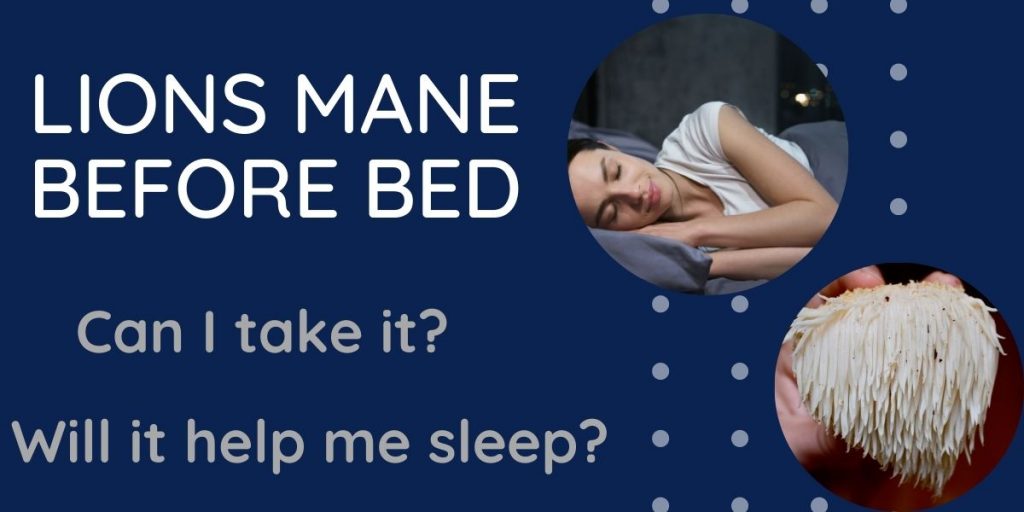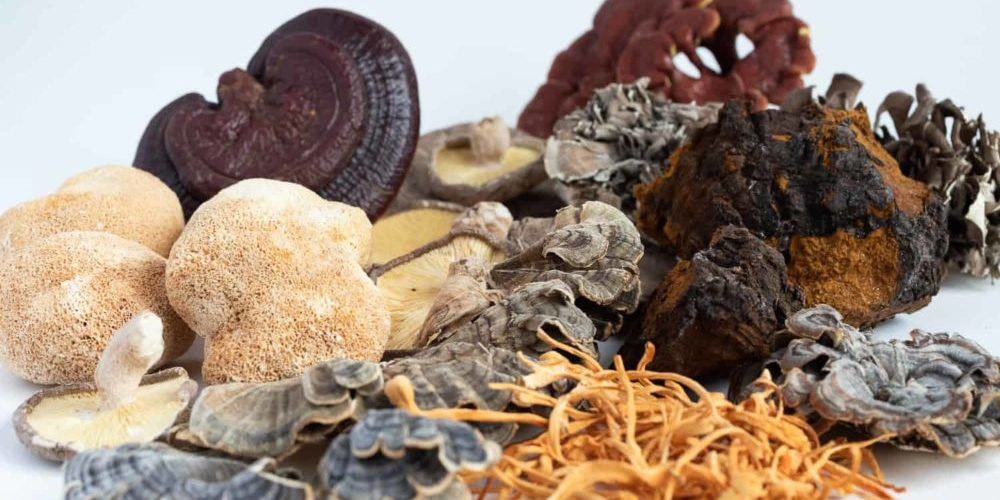Getting to sleep is crucial for anyone that takes their health seriously. So one of the first questions people who take Hericium erinaceus ask themselves is:
Can I take Lions Mane Before Bed?
We’ll get to that, but first lets get into Lions Mane (Hericium erinaceus). It’s a curious-looking mushroom known for its crab-like taste and for its use as a medicinal supplement. Although the data supporting its use as medicine is still preliminary, the case is stronger than that for many other popular medicinal mushrooms.
The fruiting body of lion’s mane is very distinctive-looking; it consists of a large but short club covered with a “mane” of soft spines. No, the spines do not make the mushroom feel hairy in the mouth—they aren’t really noticeable at all. They grow in hardwood trees, usually fruiting from a wound in the trunk. The same wound may yield lion’s mane fruiting bodies year after year. There are several similar and closely-related species, though these generally have branched fruiting bodies—all are edible and taste similar, but there has been no research as to whether they have the same medicinal benefits.
As mentioned, the scientific research on lion’s mane is still preliminary, so much of what we know, or think we know, about how and when and why to take lion’s mane comes from the anecdotal reports of users.
Why Take Lions Mane?
Available research suggests that lion’s mane may be useful for treating neurological problems, diabetes and diabetic nerve pain, gastrointestinal problems, and certain forms of cancer. However, there have been, few if any, large clinical studies of human patients taking lion’s mane, so it is difficult to be sure which of these uses are effective or what the best ways to use this mushroom are.
Despite the uncertainty, many people claim to have been helped by taking lion’s mane extracts, often for neurological issues, such as brain fog. It seems likely that as more research is done, some of these uses will be confirmed.
Does It Matter If You Take Lions Mane Before Bed?
Does it matter whether lion’s mane is taken right before bed? Maybe, maybe not. Anecdotal evidence on the subject yields plenty of people claiming that taking lion’s mane before bed made sleeping difficult. Some report trouble sleeping if they take lion’s mane at all. And yet others claim that taking lion’s mane makes sleep easier and more restful. For them, taking lion’s mane except close to bedtime could be a bad idea.
The variation in user experience might be the result of variation in personal biochemistry and health status, or it might come from differences in how lion’s mane is taken—quality varies a lot among supplement brands, as does whether the supplement is made from the fruiting body, the mycelium, or some combination of both. Lion’s mane mycelium is biochemically very different from the fruiting body. It’s also true that many users take multiple supplements together, and could be experiencing synergistic effects. Some could even be miss-attributing sleep difficulty really caused by some other factor. It is notoriously difficult for individuals to identify the true causes of health changes. That’s why scientific medical research was invented in the first place.
There is only one scientific source on the subject, and it suggests that Lions Mane actually may advance the sleep-wake cycle by reducing wakefulness during REM.
Until more concrete information comes in, the wisest course for lion’s mane users might be to be alert to changes in sleep habits and to adjust the timing and the dose of the supplement as needed.
As always, consult with an experienced healthcare professional whenever possible.
Conclusion
There is no concrete evidence that Lions Mane keeps you up at night. However; it’s just smart to take Lions Mane in the morning. The main reason most people take Lions Mane is for it’s nootropic and cognitive effects, and why wouldn’t you want those as soon as possible, in the morning, to start your day?
The benefits of Lions Mane far out weighs the potential that it might cause sleep issues if it’s taken close to bed time. I’d so give it a shot, as there are few to no side effects when it comes to Lions Mane.
Make sure when you choose a Lions Mane supplement you do your research. There is a lot of frauds in the mushroom industry and companies selling products that have no bio-availables. I personally use Lions Mane from Noomadic Herbals because they are made of fruiting bodies, are hot water extracted and list their Beta-D-Glucan (bio-available) content.




